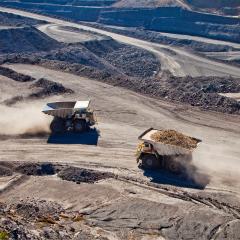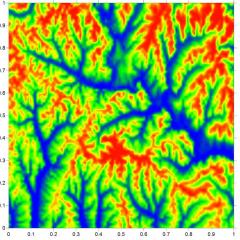Advanced data analytics to predict flowing bottom-hole pressure
UQ researchers have come up with a clever machine learning script to help reliably and cost-effectively predict the pressure at the bottom of a well. This flowing bottom-hole pressure (FBHP) is a key factor in optimisation of the production of gas wells, making it key information for well operators.
The sensors that are commonly used to monitor this important metric for gas wells sit at the bottom of the well and, while they provide good data, they come with some inherent and costly pitfalls.
They are not always reliable - they need regular maintenance, and sometimes they break. Being so far underground, maintenance or replacement is no simple task.
The well has to be shut down to pull the gauge out to check if it’s working, to conduct regular services, or to replace broken units. This is time consuming and expensive for well operators, as well as being difficult to plan in advance.
UQ researchers saw an opportunity to use advanced data analytics to improve on the process, coming up with a novel machine learning script to help predict FBHP based on a well’s performance characteristics.
An initial model was developed using surface and sub-surface data from 341 gas wells in Australia. The historical measurements from downhole pressure sensors were fed into the model included gas and liquid flowrates, pump torque and FBHP. A second model has now been produced using data from an additional 88 wells run by another Australian gas operator.
The machine learning models have the potential to provide an early warning system for faulty or failing sensors. They may also prove to be a valuable tool to enable continuous monitoring of the FBHP in the event a downhole pressure sensor fails - without interrupting production from the well.
The work has caught the interest of industry, with two Australian operators flagging their interest in being the first to implement the new machine learning script in the field. UQ researchers are now investigating how the learnings from this work can be applied to other well performance issues.
UQ Centre for Natural Gas researcher, Dr Mahshid Firouzi, led development of the machine learning script. Dr Firouzi noted that the expertise of Dr Suren Rathnayake was critical to the success of the milestone for the project



